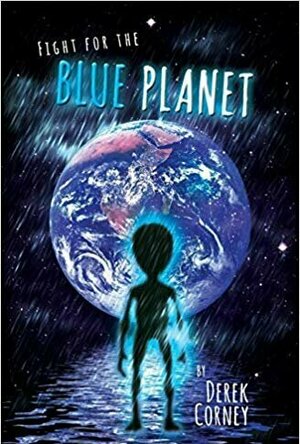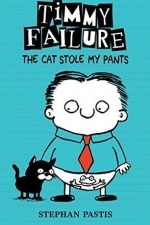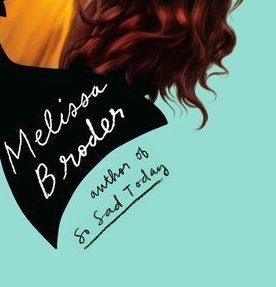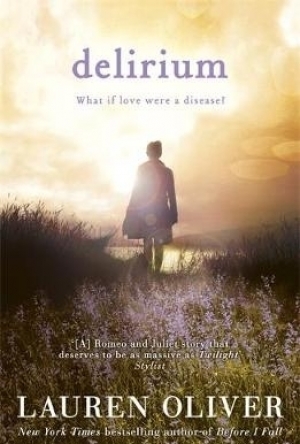A Bibliophagist (113 KP) rated The Gentlemen (2020) in Movies
Jan 27, 2020 (Updated Jan 27, 2020)
If "Snatch" is Ritchie's attempt at perfecting "Lock Stock and two smoking barrels" then "The Gentlemen" is the final attempt at perfecting this formula. He absolutely succeeded in this in every way. "Snatch" is a GOOD movie, but this is a good FILM, in the same distinction as literature from standard fiction. We revisit his pentient for sprawling plots with a slew of characters, all intertwined but the full scale of their involvement coming to a head at the end, but he elevated this with "The Gentlemen".
We open with Charlie Hunnan, proving to me he is a capable actor when he's not faking an american accent and given a role that suits him. A pot kingpin's right hand man being greeted by Hugh Grant in a role I've never seen him in, skeezy, unattractive, cockney accent, a reporter for tabloids offering his story for a mere 20mil pounds. Grant preceeds to tell this thrilling tale of Micky (mcconaughy) the aforementioned kingpin, attempting to sell his impressive pot empire so he can retire with his wife who he absolutely loves. Through Grant, we are given a new twist on the Ritchie formula, an unreliable narrator, which just brings the story to life. We see what goes down during these days of attempted sale, the involvent of another druglord wannabe (golding), wanting a piece of the pie, the accidental involvement of Coach(Farrel) when his group of trainees piss off the wrong people, and the twisty, turny, bullet flinging fights that ensue. This movie is beautifully paced, not feeling as long as it was, witty, with plenty of laugh out loud moments, but balanced with enough gritty reality to leave you quiet as soon as you finished laughing. In true Ritchie form, by the end all the pieces fall into place, the full reality revealed in a satisfying, fun finale. However, the twist of the unreliable narrator, leaves us with the reality that we may not know everything that happened. I would argue that beyond a part with some Russians, every character and event (and there were a number of them) felt purposeful, well thought oit and completely necessary to the plot. Like it's predecessors, the music was on point, the editting and cutting perfect and leading to a slightly old school vibe while feeling fully rooted to the present. The plot was over the top, but modern and believable. Overall, it was just exceptionally fun.
He finally figured it out, and gave us something as fun as "Snatch" but elevated it to true FILM status. Making it, arguably, the better film. Highly recommend it.
Night Reader Reviews (683 KP) rated Fight for the Blue Planet in Books
Jan 9, 2020
One night in the middle of summer three children, Timmy, Adam, and Salma are visited by an alien. This alien, who calls himself Shack-Shack, tells the children of another alien race called The Targ who wants to take over Earth for its resources. Shack-Shack gives each child a special power (invisibility, shape-shifting, and teleportation respectively)and convinces them to fight against the Targ. Following a beacon signal.
Salma teleports them all onto a Targ ship and the fun begins as they start their battle with the Targ. At one point the children find their way onto another planet that the Torg are using for a prison of sorts and manages to free the leaders of another alien race whose species has resistance camps against the Targ all across the planet. Things are not all smooth sailing for the children though as multiple times they find themselves questioning the actions of their allies. Also at a few different times, these young children are faced with the moral dilemma of doing something for the greater good instead of a quick fix. The parents of these young children are completely unaware of anything unusual thanks to shape-shifting imposers that look and act just like their children. Will the children be able to save their home and return to their family or is their home going to be destroyed forever?
I really enjoyed the idea that the aliens chose children to help them out instead of adults and their reasoning for it is sound. They mention how children just accept their powers and abilities while adults would question everything. Also, adults would end up debating the circumstance among themselves until it is too late, while the children will just act right away. The one thing that I really did not like was the uses of double names for some of the aliens such as Sim-Sim and Lee-Lee. They made an otherwise good book feel unnecessarily childish to where I thought it was for a much younger age group than what I ultimately decided.
This is a childrens book for some middle school readers and younger. At the same time, I still enjoyed this book as a break from the normally heavy adult literature. It does have a few remarks and comments that would make an adult think about our entire races behavior. Overall, I give this book a perfect 4 out of 4. The story moves at a steady pace and introduces new characters and concepts without making the reader confused. This book is an interesting read for all ages.
https://nightreaderreviews.blogspot.com
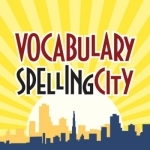
VocabularySpellingCity
Education and Games
App
VocabularySpellingCity App Improve Reading Comprehension and Vocabulary VocabularySpellingCity is a...
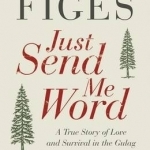
Just Send Me Word: A True Story of Love and Survival in the Gulag
Book
From Orlando Figes, international bestselling author of A People's Tragedy, Just Send Me Word is the...
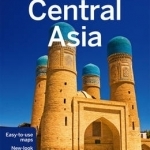
Lonely Planet Central Asia
Lonely Planet, Mark Elliott, Bradley Mayhew and Tom Masters
Book
Lonely Planet: The world's leading travel guide publisher Lonely Planet Central Asia is your...
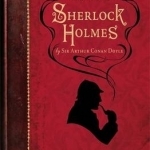
The Penguin Complete Sherlock Holmes
Book
The Penguin Complete Sherlock Holmes by Arthur Conan Doyle are the complete adventures of the...
The Oxford Companion to Cheese
Mateo Kehler and Catherine Donnelly
Book
The discovery of cheese is a narrative at least 8,000 years old, dating back to the Neolithic era....
Hazel (1853 KP) rated Timmy Failure: The Cat Stole My Pants in Books
Sep 12, 2017
For fans of Diary of a Wimpy Kid (Kinney, 2004) is a juvenile series by American author, Stephan Pastis, about a young boy who believes he is the world’s greatest detective. A series that is continually growing, the sixth Timmy Failure story is now available for fans and new readers. Subtitled The Cat Stole My Pants, Timmy Failure embarks on an adventure of mystery and crime solving whilst getting himself into all sorts of mischief.
Emulating both real and fictional detectives, Timmy has established his own agency, Failure, Inc., of which he is the sole employee after the flight of his (imaginary) ex-business partner, Total the polar bear, who is currently seeking political asylum in Cuba. Unfortunately, Timmy has been forced to join his mother and Doorman Dave on their honeymoon in Key West, Florida, along with Doorman Dave’s nephew, Emilio.
“Crime doesn’t take a holiday. Neither does greatness.” Determined to continue solving crimes, Timmy hires Emilio as an unpaid intern and sets off searching for crimes, greatly over exaggerating every little piece of “evidence” he finds. However, it soon appears that someone is out to get Timmy and he, along with Emilio, is determined to find out whom.
Timmy is a melodramatic, unconventional child with a large ego and is constantly getting told off. From annoying adults to having his pants stolen by a polydactyl cat – or so he claims – there is no end to the hilarious situations he causes.
The cat that stole Timmy’s pants only makes a brief appearance in the book, therefore the subtitle is more to attract the attention of young readers with its silliness rather than be suggestive of a certain storyline.
Despite his grand claims, Timmy is not a very good detective and a lot of his unsolved crimes have been invented by his overactive imagination. This adds to the humour because, although he seems like an intelligent child, his ideas are completely silly.
Adorned with childish drawings and diagrams, Timmy Failure narrates the story from his subjective point of view, inflating his successes and blaming any failure on poor Emilio. No one takes Timmy seriously, which is something many of the target readers may appreciate, although they should also understand how futile Timmy’s attempts are at being a detective.
The storyline is not particularly clear until the final chapters of the book. Up until that moment, the book is full of disastrous, imaginary detective endeavours that prove Timmy to be nothing more than an annoying, inventive boy.
Some of the language may be above children’s reading capabilities, however, the humour is directly on their level. Whereas an adult may not find the idea of a cat stealing someone’s pants amusing, a child would find that hysterical.
There is no reason to read the Timmy Failure books in order, so if you, like me, read book six first, there is no problem. The stories are particularly aimed at young boys and will hopefully encourage the demographic to start reading more. Whilst it may not be a great feat of literature, it is a good enough introduction to the world of books.
Janeeny (200 KP) rated The Pisces in Books
May 9, 2019 (Updated Jun 10, 2019)
I read this as this months book club book. The lady that suggested it did mention that there are a fair amount of sex scenes and sexual references so I was prepared. However I must say that, for me, none of the sex scenes were gratuitous, they formed part of the story. If you took out the sex scenes the book really wouldn’t make a lot of sense or would at least be a bit weaker for it. The language she uses isn’t cliche or cringey either (there’s no heaving breasts or throbbing body parts) it’s very ‘real’.
This book is a bit like the ones you’re given to read in English literature classes in school, that are rife with meaning and symbolism that you have no idea about until your teacher points it out. I feel there is a strong feminist message in there somewhere, as most of the women in the book are trying to fight a sexual reliance on men. It’s also heavily underlined by the fact that literally all the male characters are weak in one way or another.
To that point I really did not like Theo, the main love interest. He seemed a bit too weak, not as a character but as a person. This is a book with a strong feminist message, so it wouldn’t do to have your heroine overshadowed by a man so that is understandable. (A little side note, a member of my book group bought up the interesting idea that the ‘weakness’ is just an act and he’s psychologically preying on Lucy’s vulnerability)
There are a lot of references to Sappho, which again I feel hints at a feminist message. I’m sorry to say that even though I am aware of Sappho I have barely any knowledge about her. I have now acquired a couple of books from the library to remedy this.
There were some quite strong opinions on this in book group. Whilst I liked the book for it’s style of writing, one of the other ladies liked it for its controversy, but most of the group really didn’t like it at all. The strong feeling against it came, mostly, from the explicit language that was used, whilst one member was so bewildered by the events within the book she was convinced the main character was just on a big drug trip and hallucinating the whole thing.
A couple of us did take something away from the book, I took away a strong interest in the works of Sappho, and one of the other members took away a deeper understanding of a past friend whose behaviour she recognised in some of the characters in the book.
I think we’re going for something a little less controversial next month
Lena is born to a world that believes this. People are cured on their eighteenth birthdays to live a contented, unemotional (but not emotionless) life. Parents don't console their children when they are hurt and kisses are just curt transactions.
Prior to your birthday you are evaluated and matched with four to five possible future husbands. Once ranked, you are paired and will marry after you graduate from University. That is the only pseudo-choice you are given over your own life. Even your University and major are chosen for you.
Lena is afraid. She's afraid to break rules, afraid to even think the wrong thoughts. Sure that those in charge will find out and take her away. That is why when her best friend starts to question, to wonder if the cure is happiness, to explore and to listen to music banned by the government - Lena's world is turned upside down. Through Hana and some trespassing, she meets 19-year-old Alex.
Alex introduces Lena to things she never even knew she wanted. Time ticks down to Lena's cure and she realized that she might not want it anymore. but that's not a choice she is given. The cure is mandatory, so what is she going to do?
The world we are introduced to is much like our own, yet it is a world changed by deliria. The government taps people's phones, regulators and police perform raids during which all rights are forfeit, and your life is chosen for you. The world-building is wonderfully done, allowing us a look into this strangely familiar world through the eyes' of Lena. There are short quotes at the beginning of each chapter that illustrates some of the rules, propaganda, cautionary tales and banned literature that Lena would be familiar with. It gives the novel an extra level of depth that benefits it greatly.
The characters in the novel are varied and realistic. Lena is a normal, ordinary girl - or at least that's the way she thinks of herself, but she makes courageous extraordinary choices. Where will her heart take her? Hana, her best friend is rich and beautiful but she wonders if there's something more. Will she give up her contented life or take the cure? Alex is from another world and different ideals shape his thoughts. Will he alter the girls' perception of their government and lives, or will they choose the cure?
Wonderfully well-written novel that I highly recommend to young adult/teen readers even if they don't normally read dystopian style novels. There are only one or two instances of a curse word being used and no inappropriate scenes detailed. This is a very enjoyable read that will keep you up into the wee hours of the morning.

